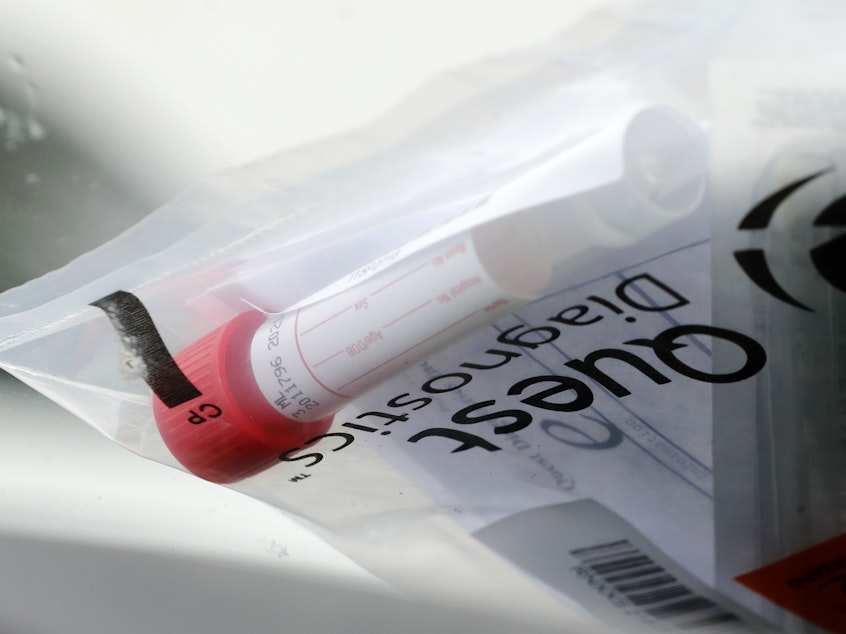Race, Ethnicity Data To Be Required With Coronavirus Tests In U.S.

All laboratories will now be required to include detailed demographic data when they report the results of coronavirus tests to the federal government, including the age, sex, race and ethnicity of the person tested, the Trump administration announced Thursday.
The new requirement, which will go into effect Aug. 1, is designed to help provide long-sought, crucial information needed to monitor and fight the pandemic nationally.
"The requirement to include demographic data like race, ethnicity, age, and sex will enable us to ensure that all groups have equitable access to testing, and allow us to accurately determine the burden of infection on vulnerable groups," said Adm. Brett Giroir, assistant secretary for health in the Department of Health and Human Services.
The U.S. government has faced intense criticism for failing to gather such data on a timely basis. Many public health experts consider this information necessary to blunt the impact of virus, which has claimed the lives of more than 107,000 Americans.
During a congressional hearing Thursday, Robert Redfield, director of the Centers for Disease Control and Prevention, apologized for the agency's slowness in gathering better data.
Sponsored
"I personally want to apologize for the inadequacy of our response," Redfield said. "We didn't have the data that we needed."
Public health experts say what's been needed are detailed breakdowns on how the virus is affecting African American and other minority communities. These groups appear to have been hit especially hard, suffering higher rates of infection, serious illness and death.
"One problem that epidemiologists in particular have seen with all of this new lab testing sites data (pharmacies, drive-throughs, non-traditional lab settings) is incomplete data," Scott Becker of the Association of Public Health Laboratories wrote in an email to NPR. "The data guidance issued today will aid state and local public health officials to better do their job."
Better testing data should help identify groups that are being hit hard by the virus and who require priority access to better testing and treatment. In addition, improved data will help health departments more quickly track down people who might have been exposed to the virus, to try to prevent new outbreaks.
"I am particularly encouraged that they plan to included demographic data, which will be important for helping us to better understand observed racial/ethnic and other disparities in case numbers," Jennifer Nuzzo, an epidemiologist at the Johns Hopkins Bloomberg School of Public Health, told NPR via email.
Sponsored
Some state and local health officials, as well as some hospital and commercial labs, have complained that the federal government has issued confusing, contradictory and counter-productive guidance and requirements for testing.
The Centers for Disease Control and Prevention has also been criticized for combining the results of different kinds of testing in its tallies of testing, providing an inaccurate picture of the pandemic.
The new requirement comes as civil unrest has erupted in many places around the U.S. in response to police brutality and the killings of black people.
In announcing the new guidelines, Giroir singled out hospital laboratories and commercial labs for failing to routinely provide detailed demographic information with testing results.
Julie Khani, president of the American Clinical Laboratory Association, which represents commercial laboratories, defended the group's members.
Sponsored
"Our members have faced obstacles tracking down missing information that is not collected or reported by the provider when the specimen is collected," Khani wrote in an email to NPR, "and that's why we've been engaged with providers, the CDC, public health agencies and others since the beginning of this public health emergency to ensure we're doing all we can to collect this information." [Copyright 2020 NPR]

